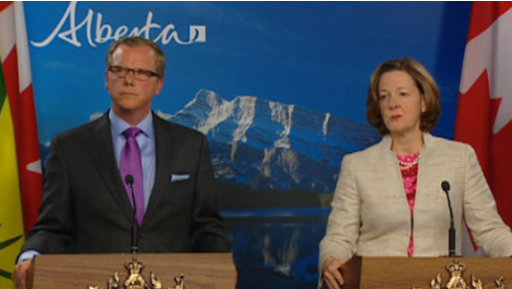Alberta premier heads to Washington to lobby for Keystone XL's approval
The Canadian Press, Published Thursday, Feb. 21, 2013 4:05PM EST, Last Updated Thursday, Feb. 21, 2013 8:58PM EST, Source
EDMONTON -- Alberta Premier Alison Redford says she is heading to Washington this weekend to lobby for the Keystone XL pipeline and she remains confident it will be approved.
Redford says Albertans have the same environmental concerns as Americans do over the province's oilsands and her government is taking steps to minimize climate change.
The premier is to meet in the U.S capital with state governors and with Canada's U.S. ambassador Gary Doer.
President Barack Obama's administration is expected to deliver a decision later this spring on Keystone XL , which would deliver heavy oil from Alberta to refineries on the U.S. Gulf Coast.
Redford's government says it needs projects such as Keystone to open market access and arrest the loss of billions of dollars from its discounted oil.
Environmentalists want Keystone to be killed as a message that the United States no longer wants oil from so-called "dirty oil" projects such as the oilsands.







